|
I am incredibly proud of my oldest son, who has proven himself to be a multi-talented individual with a passion for programming, art, and video game design. One area in which he truly excels is the fascinating world of AI-generated art. Witnessing the incredible artwork he created for my three Chronicles of Fu Xi novels, I was left in awe of his talent and dedication. Last Christmas, my son surprised me with three large art posters, each presenting his unique interpretation of the characters and scenes from my Chronicles of Fu Xi series. These stunning pieces of art truly captured the essence of each novel and left me deeply moved. Though he intended these artworks as heartfelt tributes to my writing passion rather than replacements for the existing book covers, I must admit, the idea of using them for that purpose did cross my mind. Unfortunately, certain formatting and aspect issues prevent their seamless adaptation to paperback covers while preserving the integrity of the art. Nevertheless, these three framed prints now hold a special place in my home office, eagerly awaiting the opportunity to become centerpieces for an upcoming remodeling project, transforming the space into a library/study. I couldn't resist sharing these captivating artworks with you, as they are not only visually stunning but also serve as a testament to the depth of my son's talent and creativity. His devotion to his craft makes me immensely proud as a father. This unique experience has sparked a thought within me: when the final novel in the Chronicles of Fu Xi series is released, I may consider creating new book covers, and I'm hopeful that my son will be willing to collaborate on this exciting project. While we eagerly await the conclusion of the series, I invite you to immerse yourself in the captivating world of The Chronicles of Fu Xi. This historical epic fantasy series is a labor of love that has been close to my heart, and I hope it captivates your imagination as it has mine. Thank you for joining me on this journey of art, family, and literature. - Brian "Chronicles of Fu Xi: Three Book Set" signed by author.
$55.00
Get all three paperback novels signed by the author! Set in the long-forgotten period of ancient history known as "The Younger Dryas," THE CHRONICLES OF FU XI transforms recently re-discovered Black Sea legends, possibly the root of all Eurasian mythology, with ancient Chinese mythology to create an unprecedented epic fantasy series. Allow 1-2 weeks for delivery.
0 Comments
In 2011 I sat in a Manhattan publisher’s office pitching my novel to several editors who were supposedly big deals in the publishing business. Everyone at the conference was trying to tie their novels into Game of Thrones, Walking Dead, Breaking Bad, or Ready Player One. My novel? Not so much.
"Where does your manuscript fit on the book shelves?" they asked. "Not next to Game of Thrones, Breaking Bad, Walking Dead or Ready Player One," I said. "Its more like Ten Commandments meets The Odyssey." Needless to say, I didn't land a fat publishing contract that week. I can’t remember her name, but one publisher from that conference stands out in my memory. All the female authors who were pitching their novel to her were warned not to show too much cleavage in her presence. I had no cleavage, so I felt confident going in (though I can’t make that claim today). She listened to my pitch with a dour expression, like she had to pass a kidney stone, and then asked me if my novel (Black Sea Gods) was going to be a series. “Three or four novels,” I replied. “The first novel is complete, the second well underway.” “Too ambitious for a new author,” she scoffed, and summarily dismissed me. And thus ended my attempt to get The Chronicles of Fu Xi traditionally published. Every new word added to the Chronicles of Fu Xi, Book IV’s manuscript is a blow against Anti-Cleavage Lady. Take that, mammary hater! Sometimes that moment in New York drives me onward, just to prove her wrong. Actually, she was probably right. I should have started my writing career on something a little less ambitious, and a lot more commercially viable. If I wanted a traditional publishing contract, a historical fantasy, set in central Asia, and bordering on literary fiction probably wasn’t the place to start. Not that any of that matters now, I’m committed. The Chronicles of Fu Xi, Book IV is well underway. This story must be told. I completed 2000 words this weekend and two more chapters in the can. That brings the word count to 22,000. The writing is coming easier now, and it isn’t. When I write, I have Books I-III open on my desktop, plus The Golden Princess, trying to avoid plot holes. It’s a Herculean effort to keep characters straight, events lined up, and everything in sync. I think it’s working. I’m back in the groove. Regardless, it's ambitious, to say the least. Anti-Cleavage Lady's warning echoes in my mind. One major change came out of this weekend’s efforts…I’ve changed the last novel’s title. It was going to be “The Children of Fu Xi”, but I’ve ditched that. That title was suggested many years ago by an editor, and I kept it in my back pocket. I’m not going to divulge the new title until the publication date approaches. However, it ties the final novel back to the first novel and sounds great. That’s all I have for today. I’ve got to keep my energy focused on the writing. However, if you haven’t picked up the series, you really should. There are three ways to start: First, you can get copy of Black Sea Gods, the first installment in the series, Second, you can buy a copy of the prequel, The Golden Princess. If you really want a treat, get the Audible copy of The Golden Princess, narrated by the BBC’s Philip Battley. You will not regret it, he sounds great. I’ll see you later this week for another installment of Photography Phriday. *** If you enjoyed this blog, please like the post and leave a comment or if you're feeling brave, share it on social media. This platform is my entire advertising budget and is how I share the word on my books. Also visit my Facebook, my author page and check out my photography book from America Through Time, "Abandoned Wiregrass: The Deepest South's Lost and Forgotten Places." #books #blackseagods #writing #philipbattley #audiobooks #epic #fantasy #epicfantasy 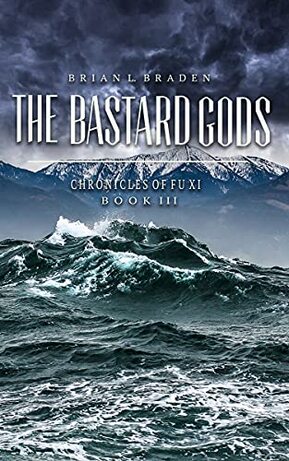 It's 4:39 a.m. on book release day for "The Bastard Gods." I made a cup of coffee, turned on Spotify with Sammy Hagar's "Eagles Fly" blasting in my head phones and sat down to kick off the next chapter in a personal journey that started a decade ago. It's a great morning. Almost seven years in the making, "The Bastard Gods" is finally on sale! I dedicated this one to the readers who stuck with me. I hope this latest chapter in The Chronicles of Fu Xi meets your expectations. I'd also like to thank my editor, Keri Karandrakis, as well as Michael G. Manning for recommending her to me. Why did it take so long? This was the most difficult book I've ever written, and the easiest. Getting the massive plot turned in the direction I wanted was difficult. The characters, however, helped whenever they could by writing themselves. It's a long book, and a complicated plot, but that's not the only reason this took almost seven years. Writing two other books in the meantime, and producing an audiobook, didn't help. Along the way, I also got bit by the photography bug (Big Time). Photography distractions probably added about two years to the endeavor. Mostly, though, I got discouraged. (also Big Time.) Getting discouraged is as common for indie writers, or maybe even all writers. There were a few times I almost quit and decided not to finish the series. It just wasn't one thing that dragged me back to finishing it, but several: First, I wanted to be a positive example for my kids. I taught them to start what you finish, and do the best job you can. My oldest is entering a career in the creative arts, and I'm sure he is going to get discouraged from time to time, too. Ryan, I won't quit, so you don't either! Next, sheer stubbornness. I pitched the series to a big-time editor in 2011. She shook her head and said, "Too ambitious for a new writer. You probably won't finish." Three down, one to go, lady. You were wrong. Also, there is a wonderful reader who kept sending me really cool t-shirts. I didn't want to let her down, either. Thank you, Helen.I still have them all. Finally, who am I kidding? I'm not a quitter. I was going to finish this book no matter what, just like I'm going to finish the next one. What can I tell you about this novel? It's bigger and grander than the first two in the series. "The Bastard Gods" has more action than the previous books. It honors the world's great legends and myths, with just enough actual history thrown in to make it unique. And it is unique. You will find nothing like it on the book shelves. It is my sincerest hope you give it a try. If you haven't experienced my epic fantasy series, The Chronicles of Fu Xi, it's a great time to pick it up. This week I'm running a promotion where the first two novels are free on eBook. Just click on the hyperlinks and download them to your device. Once again, thanks to all the readers who stuck it out during the long drought. This one is for you. 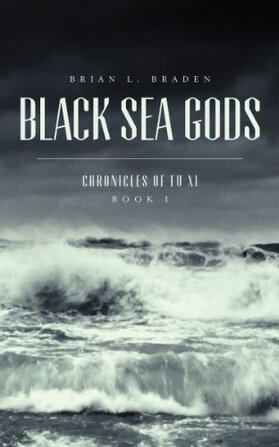 SEMIFINALIST, 2013 KINDLE BOOK REVIEWS SCI-FI/FANTASY BOOK OF THE YEAR! The fish have disappeared from the sea. The animals have vanished from the land. All humanity, and even the gods, tremble under the specter of a pending cataclysm. The demigod, Fu Xi, races home from the edge of the world bringing news of a looming god war, but finds his land under attack by monsters he once called his children. He discovers a terrible curse has been cast, one intended to destroy the gods and all life. To his shock, Fu Xi learns that mankind's last hope rests solely on him, a simple fisherman, and a banished slave girl.Beset on all sides by ancient foes, both immortal and mundane, Fu Xi knows he must act quickly and races west to rescue the saviors. Unaware of the real doom that awaits, Aizarg the fisherman and his party begin a perilous journey across a dangerous steppe. They seek the last of the Narim, the legendary Black Sea Gods, who hold the key to their salvation. Leading them is the rescued slave girl Sarah, the only one among them who knows the path to the land of the god-men.Over seven days, the defining struggle of gods and humans begins under the onslaught of a powerful force whose true objective and origin remain a mystery. Fu Xi knows the secret to victory resides in the fisherman and the slave girl, whose lives he must protect, even if it means the rest of the world must perish! 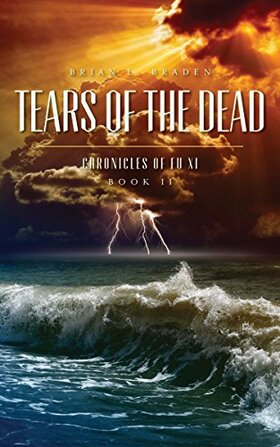 THE LONG AWAITED SEQUEL TO BLACK SEA GODS! The Curse of the Nameless God ravages the world, laying waste to man and beast. Desperate to flee the worsening cataclysm, Aizarg and his people escape to sea aboard a flotilla of rafts and fishing boats. Short on supplies and facing starvation, the Lo must not only survive epic storms and tsunamis, but ravenous demons lurking in the deep. Aizarg’s wife, Atamoda, knows that more than wind, waves and demons seek her people’s demise. A cancer festers aboard the flotilla, one Aizarg does not see. Under the cloak of darkness, whispers and conspiracies spread from raft to raft as hunger burns in their bellies. A treacherous plot poisons the hearts and minds of the gentle Lo. Atamoda and Aizarg struggle to keep their people together, even as an unseen enemy seeks to divide the Lo, and drive a wedge between Atamoda and her husband.Far to the east, the demigod Fu Xi races to reach the Roof of the World before the cataclysm claims him and his beloved horse, Heise. Along the way he discovers that a terrible power relentlessly stalks him - the dreaded god war has begun. Fu Xi’s immortality will be severely tested as he fights to not only to survive, but to fulfill his quest to find the mysterious white haired man and save his people. At the end of the world, demigod and mortal fight for survival, pawns to higher powers battling for world domination. In order to save all they love, they must find one another before it’s too late. 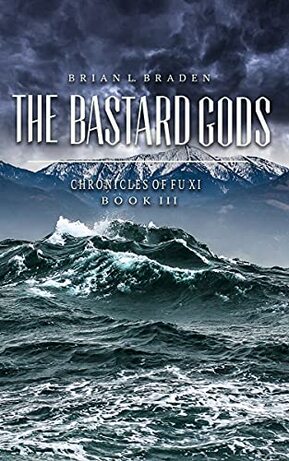 THE END OF THE WORLD IS OVER. THE BATTLE FOR A NEW AGE HAS BEGUN. Two demigods roam a shattered world, one driven by conquest, the other on a mission of salvation. Caught in between are humanity’s last survivors. From the south marches Leviathan and his army of cannibal warriors. After surviving the Cataclysm and a voyage across the world, the son of Poseidon is bent on establishing a new “Empire of the Gods.” The slave Amiran is locked in a desperate battle of wits to stop Leviathan. He struggles not only to mask his conspiracies from the demigod, but to hide his feelings for the mysterious, and beautiful woman who recently washed ashore. From the east rides Fu Xi, son of the Goddess Nuwa. He must find the Man with White Hair before Leviathan does. He also searches for the half-brother he has never known. Along the way Fu Xi unexpectedly finds a survivor, a beautiful woman that could lead him to everything he seeks…if he can keep her alive. To the west Aizarg’s bedraggled people make landfall, but at a terrible cost. Now the Lo must make their way through perilous mountains, desperately trying to find a promised land. Aizarg must keep his people alive and united, as forces without and within seek their demise. Demigods and mortals are on a collision course, but both are unaware of an ancient and dangerous force in their path, one that could change the fortunes of both men and gods. I'm interrupting my blog series on the Bible for a brief update on my writing progress.
As a way of saying "I'm sorry this is taking so long" to my readers, here is an unedited sample from my upcoming novel THE CHRONICLES OF FU XI, Book 3: THE BASTARD GODS. I'm making slow but steady progress and I am still hoping for a 2018 release. ********************************* The Demon Fish The two men stood, side-by-side at the barge’s edge, in comfortable contemplation as if pondering something so casual as an afternoon swim. Arms crossed, Levidi rested all his weight on one leg like a crane, scratching the back of his calf with his toe. Ghalen leaned lazily on his crooked spear and scratched his nose. They talked softly as the enormous fin sliced slowly back and forth in the gentle waves a few yards away. “They’re not serious, are they?” Ezra whispered to Sana. “It’s almost a third the length of the barge.” “Yes,” she replied flatly. Sana had seen this scene many times before among her people, the Scythians. It was the way men spoke to one another before the hunt, or before battle. These were murmurs of strategy, scheming or just mischief. A crowd of men and boys gathered behind Sana and Ezra, careful not to get close enough to the edge, lest they unbalance the barge. “It’s too far,” Levidi kept his voice level, but Sana could detect his excitement at the size of the monster cruising just below the surface. “I wonder how it tastes?” Ghalen squinted, as if in deep thought. “I bet its wondering the same thing,” Sana remarked just loud enough to ensure being heard. Ghalen ignored her. “Its hide looks tough,” Levidi pondered. “Yes,” Ghalen raised his eyebrow. That it does. The spear may not penetrate.” “Perhaps its hide is tough enough to repair our deck bindings.” Okta stepped alongside Sana, followed by Alaya. “Don’t encourage them!” Sana gave Okta a not-so-gentle shove to the laughter of the crowd. Okta shrugged. “It’s just a fish.” “Men are all the same. Not a shred of sense.” Sana remembered how a much smaller demon fish had sliced a sea dog in two with just a bite. This one looked like it could swallow a man whole. Sana looked around for Aizarg. She spotted him on the opposite end of the barge, back to them and staring off into the distance. He will be of no help, she thought. The demon fish began to slowly cruise closely alongside the barge. Levidi, Ghalen and the gallery followed. “We’re going to have to jab it if we stand any chance of puncturing the skin,” Levidi said. Ghalen’s shook his head. “It’s too far for a spear jab, I’ll have to throw.” Levidi pursed his lips and looked as if calculating the distance. “You’ll just lose the spear.” “That twig isn’t going to penetrate that thing’s skin.” Arms crossed and losing her patience, Sana followed a few paces behind. Behind them, the Lo straggled along, heads craning and murmuring expectantly. The sun lorded high above, the dappling reflections making it difficult for Sana to see. The big gray fin, three hands high, sliced back and forth as if daring the men to attack. Ezra leaned toward Sana and spoke in a low tone, “Even if they do spear it, how are they going to get it on the barge?” “I have no idea.” After a few more minutes of discussion, they agreed to let Ghalen throw the spear. “Remember, that is my spear,” Levidi reminded. “I’ll keep that in mind.” Ghalen screwed up his face in concentration and brushed back his thick blonde hair. Then, he cocked back his arm. Ghalen’s skill with the spear always amazed Sana, and was legendary among the Lo. If any man here had a chance of slaying the beast, it was him. The wooden tip hit dead square behind the shark’s head, and bounced off harmlessly. It landed with a weak splash before beginning to drift away. Levidi shrugged. “Tough fish.” Ghalen nodded. “It will take metal to punch through that hide.” They looked at one another and, as if reading each others’s thoughts, grinned knowingly. “I know that look.” Alaya grabbed Sana’s arm. “He’s about to do something stupid.” Ghalen and Levidi simultaneously drew their daggers from their loin-cloth straps. “They’re not…” Sana looked on in disbelief. “They are!” Ezra smiled broadly and snatched the knife from his loincloth. “One of us takes the top, the other the bottom,” Ghalen said. “Fair enough, stay clear of its tail,” Levidi gave each of his legs a brief shake to limber up. “Good point.” “Jaws, too” “Another good point.” “Levidi! Stop this foolishness,” Alaya screamed. “It’s okay, my song bird. Me and Ghalen know what we’re doing.” “Ghalen?” Sana asked incredulously. “It’s just a fish,” he winked at her. “It’s a fish as big as a wooly rhino with the teeth of a lion!” Ghalen and Levidi nodded at one another and, knives drawn, a moment later jumped on top of the beast. A mighty cheer went up from the Lo. Ezra scrambled to join them, but Sana snatched him back by the arm. “Don’t be stupid. You swim worse than I do.” Knife between his teeth, Levidi dove deep as Ghalen grabbed the beast’s dorsal fin and plunged his blade just ahead of the fin. The water exploded in spray and blood. The beast rolled and thrashed, and Sana finally saw the monster’s true size... and its teeth. Each bigger than a lion’s tooth, they stood in jagged rows. If either man lost their grip, the creature would spin about and rend them to pieces. Just as bad, its crescent-shaped tail would smash them. Sana shuddered as she finally got a look at the beast’s eyes, which were unlike anything she’s ever seen in a fish or land dwelling creature. They were like obsidian stones, lifeless and cold. Every roll revealed Levidi clinging to the pectoral fin; each stab created a brief red bloom on the it’s underbelly before the sea washed away the blood. Ghalen held on to a dorsal fin and sliced bloody ribbons down the beast’s back. Okta looked on, though to Sana he didn’t seem concerned. “Ezra, go fetch one of the two good coils of rope from my raft.” Ezra slowly backed away, as if unable to take his eyes off the battle. “Go, son. We’re going to need that rope soon.” The beast suddenly snapped its body into a “U” shape, shrugging Ghalen off its fin. Before Sana could register what was happening, the fish snapped the other way, slapping Ghalen with its tail so violently he sailed out of the water and onto the deck, bowling over several men lined up along the edge. His knife skittered along the deck and stopped as Sana’s feet. Okta clenched his knife between his teeth and dove in, followed by most of the Lo men. Soon, men covered the demon fish like ants, knives piercing and slashing. Ghalen lay unmoving, a large red abrasive rash on his chest weeping blood in some places. Sana dropped to her knees beside him, shaking his chest. Alaya knelt beside her. “He’s not breathing!” “Ghalen!” Sana pushed on his chest, trying to rouse him. Ghalen reached up and grabbed Sana by the back of the neck, pulling her down and kissing her hard. He rolled over on top of her, and pressed his body against hers. At first, she resisted, but Ghalen pressed her arms over her head, and inserted his hips between her legs. She began to melt as his tongue, and the tang of salt and blood, filled her mouth and ignited her Scythian blood. He pressed harder. She pressed back, and let a moan escape. Alaya scooted back and giggled. “Sana?” Ghalen whispered tenderly. “Yes?” Sana panted and fought the urge to push her pelvis harder against his. “Where’s my knife?” She looked at him oddly, wondering if she heard him correctly. He glanced left and his face lit up. “There it is!” He snatched it off the deck, scrambled up and leapt back into the water to join the melee. Cool air invaded the spaces where hot flesh once covered. Sana exhaled and covered her face with her hands. “I hope the beast bites his head off.” Alaya giggled again. ********************************* Did you like the sample but haven't read any of my books? Begin the adventure with the historical fantasy novel BLACK SEA GODS. (...or "why it's important to know the difference between a kidney and a spleen)I've finally started on the road to audiobook for both THE GOLDEN PRINCESS and BLACK SEA GODS. I've been hesitant to do so up to this point for several reasons. First of all, I didn't know how it all worked and I naturally fear change. Second, I didn't have the time to figure it out because I naturally fear work. Third, I knew it was likely to be expensive and I naturally fear spending money. With the help of government-funded therapy I've licked the first two hurdles. I've made some time to research the process, and asked the opinions of some smart people who have travelled this road ahead of me. I listened carefully to what they said, which was for me to give up writing and remember what it was like to live again. I told them I don't remember the taste of strawberries and they should get bent. But I digress. So...I've chosen a production company and narrowed down the list of potential narrators. By the way, I've also chosen a private jet and a villa in the Swiss Alps for, you know, when all the money starts rolling in. I did, however, run some figures and come up with a basic budget for making an audio book. There is only one small problem...how to pay for it all. Its good to have a budget. Its even better to have money. Scratch the villa and the private jet and focus on the audio book and how to pay for it. Option 1: Revenue sharing. Brutal truth time - if I were a narrator, I wouldn't agree to revenue sharing on any of my books. In fact, I'd laugh if I asked me to share my revenue on my books. I know that's harsh, but I know a lot of indie authors can sympathize with me (can I get an Amen from the crowd?) While I believe strongly in the caliber of my work (especially when I've been drinking), I just don't sell enough books (yet) to make revenue sharing attractive. I think, however, I could get a good narrator if I pay upfront. But it still leaves me with the conundrum of where to find the money. Option 2: Pay with cash from my day job. That money is already budgeted for real-life stuff, like food and kid stuff and air conditioning. Like many authors, I do not have much excess cash to spend on writing. On that note, people often liken writing to having a mistress. I strongly disagree. Other than being demanding and expensive like a mistress, they have nothing in common. A mistress is (optimally) sexy, and (usually) a secret. A mistress should also make you feel better (at least temporarily). (BTW, what the hell do you call a male version of mistress? A misteress? If a lesbian has a mistress, is she still a mistress? If a gay man has a mistress, is he a Mister Misteress?) I digress yet again. Writing, on he other hand, is just demanding and expensive. No, writing is less like a mistress and more like an old college buddy who is out of work and staying for "just a few days" until "he can catch a break." Your spouse knows all about him because he lives on her couch and she hates his guts and keeps asking when he is moving out because its time to move on and he is eating all the food and leaves beer cans all over the floor and scratches himself in from of the kids and the toilet won't flush and where the hell is the cat... Did I do it again? I did, didn't I? Back to the topic. Option 3: Sell one of my kidneys. I'm not sure either kidney is working at 100% capacity anymore. Option 4: Sell one of your kidneys. Wanna go grab a drink? Ah, never mind. It's too much of a hassle to keep all that ice in the motel bathtub. Last time I tried it, my Chinese blackmarket connection said I removed the spleen, not the kidney. I didn't get paid and was out like, 40 bucks for all the ice and whiskey. The incident did, however, convince my old college buddy to move out. Option 5: Crowdfunding. Crowd funding is a great idea for some things, like raising money for legal fees and getting former friends a new spleen. But getting the cash to fund an audio book does not qualify, at least in my mind, as justification to ask people for money, even if I give them something in return, like a slightly used spleen. I make no judgements on others who do so, but for me it feels like begging. Option 6: Hold a telethon. Unfortunately, no one under 40 knows what the hell a telethon is. Option 7: Sell a kid or two. Tempting... On one hand, I'd gain a new office, but then I'd lose the tax write-offs. I like those tax write-offs Option 8: Writing hardcore erotica under a pen name. My doctor said my heart wasn't healthy enough (but he said I have the spleen of a 20 year old. He's right, I do). Option 9: Lit Funding. Otherwise known as selling enough books to pay for the audio version. With the exception of all the other options I've listed, this the most realistic avenue to funding my audiobook. I've lit funded a cover or two. I've lit funded a lunch or two. But an audio book is another matter.
In order to make this happen I have to do some math. Since I don't like public math, I'm going to pull the curtain...I'll be right back. (whisper whisper carry the eight whisper whisper seven to the eighth power whisper whisper E equals Eminem squared whisper whisper....) I'm back. In order to pay for an audio version my latest novel I will have to sell 2,342 ebooks. That's just a teency weency (pinches fingers centimeter apart for effect) bit more books than I usually sell, like a 2430% increase in monthly sales. No problem. Bottom line, one way or another I'll find a way to finance the audio versions of my novels. Its just going to take patience and a reckless disregard for the law. In the meantime, you can help my buying or renting my novels on Amazon. Every little bit helps. If you've already read them, please rate or review them on Amazon. Believe it or not, the number of reviews on Amazon greatly helps in book sales. If you've already bought and reviewed my novels, please spread the word. If you've already done all this, thank you! I can't tell you enough how much I appreciate it. In fact, we should go out for a drink to celebrate. Say, I'm just curious, do you have both kidneys? *** Brian L. Braden is the author of three fantasy novels: THE GOLDEN PRINCESS, BLACK SEA GODS AND TEARS OF THE DEAD. Chronicles of Fu Xi, Book 3: Coming 2017.I am working hard on this novel, and hopefully will have finished it by this time next year. He is a sneak peak of what is to come. Two demigods roam a shattered world - one driven by conquest, the other on a mission of salvation. Caught in between are humanity’s last survivors.
From the south, marches Leviathan and his army of cannibal warriors. After surviving the Cataclysm and a voyage halfway across the world, the son of Poseidon is bent on establishing a new “Empire of the Gods.” The slave Amiran is locked in a desperate battle of wits to stop him. Amiran struggles not only to mask his conspiracies from Leviathan, but to hide his feelings for the beautiful woman who recently washed ashore. From the west rides Fu Xi, son of the Goddess Nuwa. He must find the Man with White Hair before Leviathan does. Fu Xi also searches for the only family he has left, a half-brother he has never known. Along the way Fu Xi unexpectedly finds a survivor, a boy that could lead him to everything he seeks, if Fu Xi can keep him alive. To the east Aizarg’s bedraggled people make landfall, but at a terrible price. Now the Lo must make their way through perilous mountains, desperately trying to find a promised land. The Lo however, are led by a new holy woman, one just as comfortable wielding a spear as a talisman. Sana and Aizarg must keep their people alive and united, as forces without and within seek their demise. While Demigods and mortals are on a collision course, an ancient and dangerous force has awoken in their paths, one that could change the fortunes of both men and gods. The end of the world is over, but the battle for the new age has just begun. Just a few more days and The Golden Princess will be here. For those of you who have pre-ordered, thank you. For those who are waiting for the release or haven't heard of my novels, Here's a sneak peek of what's inside. Sarah burst from the enormous gilded doors, just as she had done on the first day of Festival every year since she could remember. Excitement vibrated through her body, invigorated by the late afternoon sunshine. Rosewater and jasmine floated on the air as she dashed down the stairs and across the crowded courtyard. Brushing by the central fountain, she didn’t care if the spouting lions splashed her with icy water. Sarah had to see the wagon, to touch it before it departed to join the parade assembling just outside the palace gates. As with every Festival, Sarah pretended she would be a participant in the glorious event, and not just another distant spectator.
She glimpsed the beautiful wagon through the milling crowd. Between the wagon and the palace gates, she spied Asul barking orders at his warriors as they struggled to assemble the House Azubehl’s contribution to the Parade of Princes. Behind them, drummers and trumpeters warmed up, filling the palace grounds with music. Soldiers herded gayly dressed dancers, acrobats, fire breathers, and plumed horses to the head of the line. Behind them milled a bedraggled pack of chained slaves, her Father’s slice of the booty from Hur-ar’s many wars against the steppe tribes. All of these would precede her father’s wagon, announcing the power of the House Azubehl. She ducked low to avoid Asul’s eyes, and weaved amid the crush of Hur-ar’s high ranking warriors and royalty chosen to follow the Prince’s wagon. By following the prince’s wagon in the annual parade, they announced their fealty to the ancient and powerful House Azubehl. Tended by a small army of slaves, the nobles clucked excitedly to one another. Broad silver trays piled high with exotic delicacies from across Hur-ar’s vast trading empire twirled and danced through the crowd. The struggling slaves beneath their shadows remained invisible to privileged eyes. Sarah, however, was not invisible. Noblemen occasionally ogled her despite her golden veil, but Sarah knew her status as First Daughter and betrothed to the Crown Prince kept her safe. Her father had arranged for his guests’ every appetite. Scantily-clad slave girls and boys, rented from the city’s finest brothels, prowled the lush gardens at the courtyard’s edges. As her mother had taught her many times, Sarah averted her eyes from the goings-on in the shadows. While Sarah had no illusions what the men did with the slave girls behind the garden’s thick foliage, she felt uncomfortable at the thought some of the girls were younger than her. The enormous parade wagon resting before the sealed palace gates commanded her attention. Slaves hurriedly put the final touches on the family’s contribution to the Parade of Princes, the Festival’s opening event. Long ago, it had been a heavy wagon used for hauling trade goods and ore up and down the steep Cliff Road to the Black Fortress. Standing almost twice as high as a man, her grandfather had ordered it rebuilt decades ago. Ornately carved stairs replaced the mundane wooden loading ramp on its side. Silk bunting draped over polished wooden slats and interwoven with silver and golden threads, bore images of the House Azubehl’s great deeds. Wooden wheels were replaced with gilded bronze spokes encrusted with glittering jewels. Atop it all, two gold and ivory thrones sparkled in the sun. This is where her father and mother would sit as two snow-white oxen pulled the wagon up the Avenue of Kings. Only the wagons of the King and Prince Hector, first in line for the throne, would proceed them. The rest of Hur-ar’s nobility would follow in order of their Court status. All the great houses were expected to participate, each displaying their wealth and might. The parade would terminate at sunset at the King’s Palace in the city center. There, a gala feast would rage until dawn, marking the official opening of the Festival of Gold. Sarah looked about, making sure Asul wasn’t watching. The High Prince and his First Wife, her mother and father, had yet to make their appearance. Noblemen drank and laughed around her, ignoring the High Prince’s daughter lingering in the wagon’s shadow. The slaves tending the oxen paid her no mind, nor did those tasked with shoveling manure from the cobblestones. Sarah reached up and caressed the silky bunting, still as crisp and bright as she remembered it as a young child. The wagon held a special magic for her. In her imagination, she pictured it one day transporting her beyond the palace’s gilded prison. She could count on her fingers the number of times she’d been beyond the palace walls. In those times, she had been concealed behind thick curtains in a wagon, on her way to and from the family’s country villa. Impulse overrode good sense, and she scurried up the stairs. Perched on her Mother’s throne, Sarah straightened her white silk and chiffon dress, pushed up her golden bracelets, and firmly set her gaze on the closed courtyard gates. If the force of her stare could open the gates, it would. She imagined what it would feel like to ride down the Avenue of Kings with the entire city’s eyes upon her. Sarah wanted to see the people, to experience Hur-ar’s vibrant sights and sounds. Her mother would have none of it. Laughter shook Sarah from her trance. Afraid Mother or Asul might have spied her, Sarah slunk down and peered around. The crowd paid her no attention, everyone focused on the party’s latest arrivals. A court page cleared his throat and shouted above the chattering crowd, “Announcing Her Highness, Ashtoreth, Eighth Princess of the House of Azubelh, and her son Prince Bal-eeb.” With disarming smiles and leering eyes, the freemen flocked to Ashtoreth’s side. The women of court fell back, whispering to one another jealously. “Witch,” Sarah heard several of the women hiss under their breath. Hiding behind her mother’s throne, Sarah could not tear her eyes away from the woman who had arrived into their lives like a whirlwind only a few months ago. Her father’s latest, and eighth wife, Ashtoreth had become a powerful force in court. Fully in control, Ashtoreth waded into the crowd, goblet in one hand. Her dress looked as if it were spun from black spider web, originating from her full left breast and radiating across her body. Golden silk beneath the black strands afforded minimal modesty and accentuated each dangerous curve. Diamonds woven into the thin strands gave the illusion of morning dew clinging to the black webs. Long ebony hair fell down her right shoulder, glistening in the sun and barely concealing her right breast. Beautiful, Sarah thought. And then, with a hint of unease, Powerful. She watched the way Ashtoreth drew men to her, and manipulated them with a look, or a word. Sarah frowned, considering her own body, wondering if men would ever look at her that way. Then she caught the gaze of another. From behind his mother, Bal-eeb grinned at Sarah. She blushed and turned away, slumping deeper into the wagon, back pressed against the chair. Her heart thumped wildly. She slowly snuck a peek, but he no longer looked at her and mingled with the crowd. People said Bal-eeb had already distinguished himself in battle against the Scythians. Broad shouldered and bare-chested, he wore only military sandals and the traditional ocher waist wrap of a Royal officer. Tall, with a bushy black mane of hair and thick oiled beard, he resembled his cognomen, The Lion. Her father’s younger officers flocked about him, as did many of her step-sisters. The handsome prince had caused a great stir among Prince Azubehl’s many daughters since his arrival. Many of her half-sisters openly wondered if marrying their stepbrother would be permissible. Sarah hated to admit it to herself, but she thought of it, too. Though she never publicly showed it, her mother had been furious when Prince Azubehl had taken a new wife who already had a son, and one so old. Everyone knew this presented an immediate threat to Ezra, the First Son. Sarah wanted to hate Bal-eeb, but kept finding herself stealing glances at the handsome Sammujad. Brash, arrogant and savage, Bal-eeb represented everything Mother taught her was wrong, everything the ancient teachings of the Narim, the god-men of the Black Fortress, rejected. To Sarah, Bal-eeb was like spring thunder in the mountains. She knew he should be feared, but she couldn’t pull her attention away from his power. “All Hail Prince Azubehl and his beloved First Wife, the High Princess Meribeph!” A flurry of activity in front of the palace’s great doors foreshadowed the imminent arrival of Mother and Father. Sarah knew she must leave the courtyard before Mother spotted her. Backing down the stairs and staying low, she tried to blend in with the crowd. Then, her right sandal caught a stair, sending her tumbling backwards. She grabbed at the wagon’s edge, but only snatched air. She closed her eyes and braced herself. Corded muscles caught her. Sarah’s arms naturally fell across an iron neck. When she dared open her eyes Bal-eeb smiled down at her. “You must be more careful, princess.” Sarah’s face turned bright red behind the veil. Her mind battled between the desire to crawl beneath the wagon and curl up and die, or perhaps, to stay right here in Bal-eeb’s arms. “P-put me down.” She added, “Please,” and then cursed herself. “Of course.” He set her down, but inched closer, trapping her between the wagon and his broad chest. He snagged a goblet from a nearby tray, eyes twinkling playfully. He smelled of wind and steel and smoke and every fantasy she’d ever imagined of life outside Hur-ar. She smoothed her gown and hair, struggling to regain composure. Sarah struggled to think of something, anything, to say. Her years of training under the stern matriarchs of Hur-ar’s oldest families did little to prepare her for the likes of Bal-eeb. “Are you enjoying the party?” She asked voice cracking. Bal-eeb emptied the goblet in one deep swig, and tossed it to the ground. He stepped even closer, further invading her space. “You talk much. All of you city dwellers love to talk.” “Yes. I guess we do.” Ironically, Sarah realized this was the most they had said to one another since his arrival at the palace. He placed a palm against the wagon, blocking her escape, and leaned even closer. “You’re different from your sisters.” “Oh, really?” Sarah swallowed. “How?” “A man might find you desirable.” Sarah held her breath; her heart pounded. Desirable? He playfully fingered her hair and toyed with the delicate knot holding her veil in place. “Your hair. Your eyes. There are no women like you beyond the wall.” Sarah glanced around, but no one in the crowd seemed to take notice of them. Unexpected excitement washed over Sarah as his warm breath caressed her cheek. “Princess, you should not be here.” A stern voice came from beside them. Sarah turned to find Asul locked eye-to-eye with Bal-eeb. “Hello, Captain Asul,” she exhaled, simultaneously relieved and disappointed. “Be gone, guard,” Bal-eeb gave Asul a dismissive glance. “Princess Sarah isn’t supposed to be here.” “Go away,” Bal-eeb glanced at Asul the way a mad dog does before it snaps. “She’s coming with me.” Bal-eeb drew himself up and turned to face Captain Asul. “When does a commoner give orders to a prince?” Those who took no notice before now turned and watched the two warriors face off. Bal-eeb hovered over her like a predator protecting its kill, Asul the unyielding interloper. Asul’s tone never changed, his face impassive. “I am under orders from High Princess Meribeph. Take it up with her.” Even though she seemed forgotten, Sarah tried to flatten herself as much as possible against the wagon. Bal-eeb laughed and stepped back. “Who am I to oppose the will of the High Princess?” The tension broke as Asul grasped Sarah’s wrist and pulled her away. The crowd began to chatter again like crickets after a passing storm. Asul led Sarah behind the columns at the courtyard’s edge. “Sneaking about again, my princess?” Asul said gruffly once they were out of earshot. “A proper princess doesn’t sneak, isn’t that what you tell me?” “Yes.” “Then I guess I wasn’t sneaking.” |
Archives
July 2023
Categories
All
|
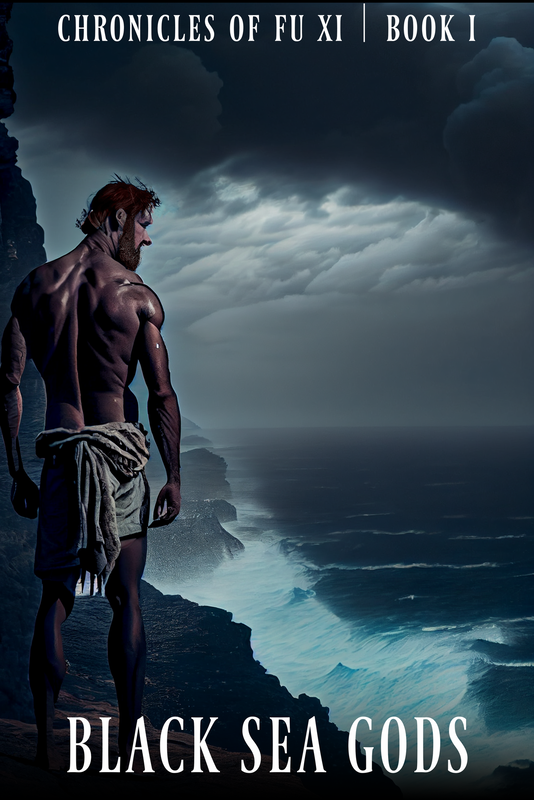
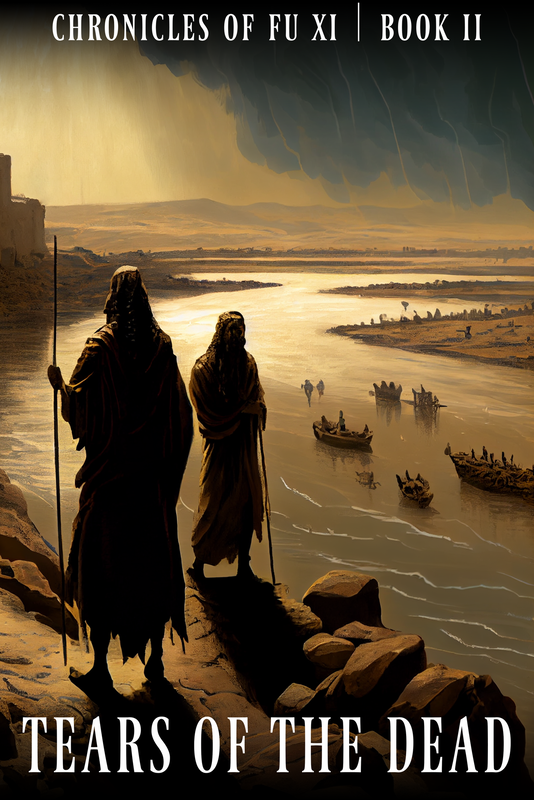
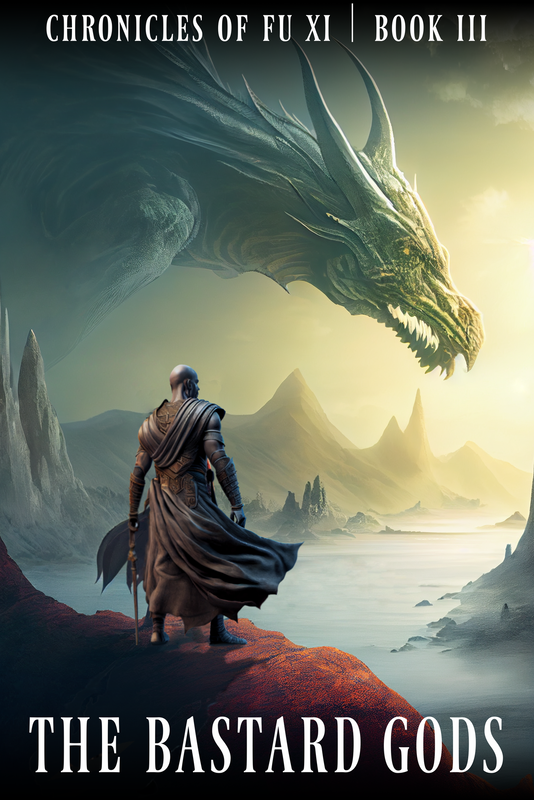
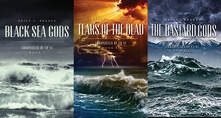
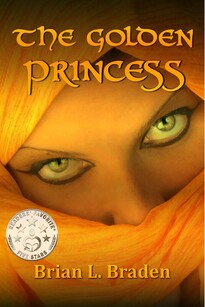
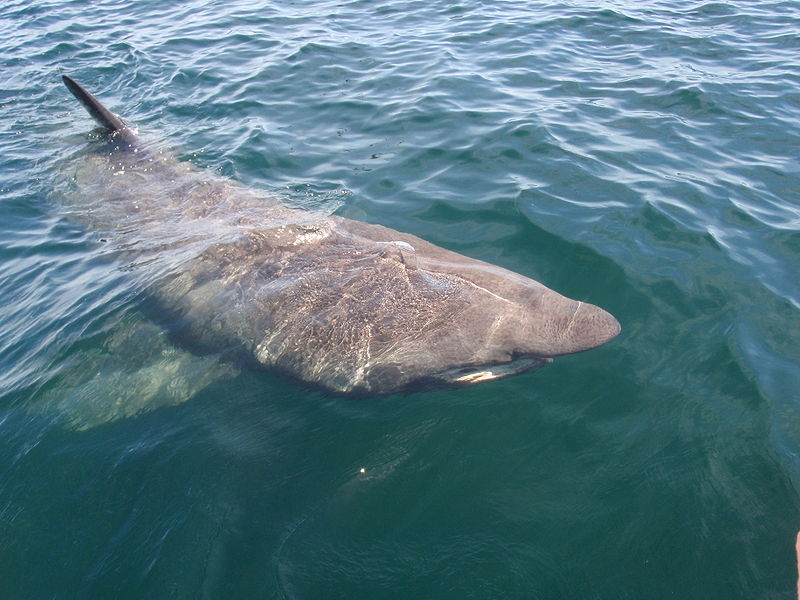

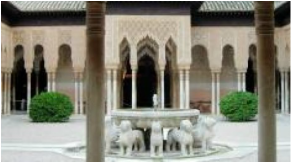
 RSS Feed
RSS Feed